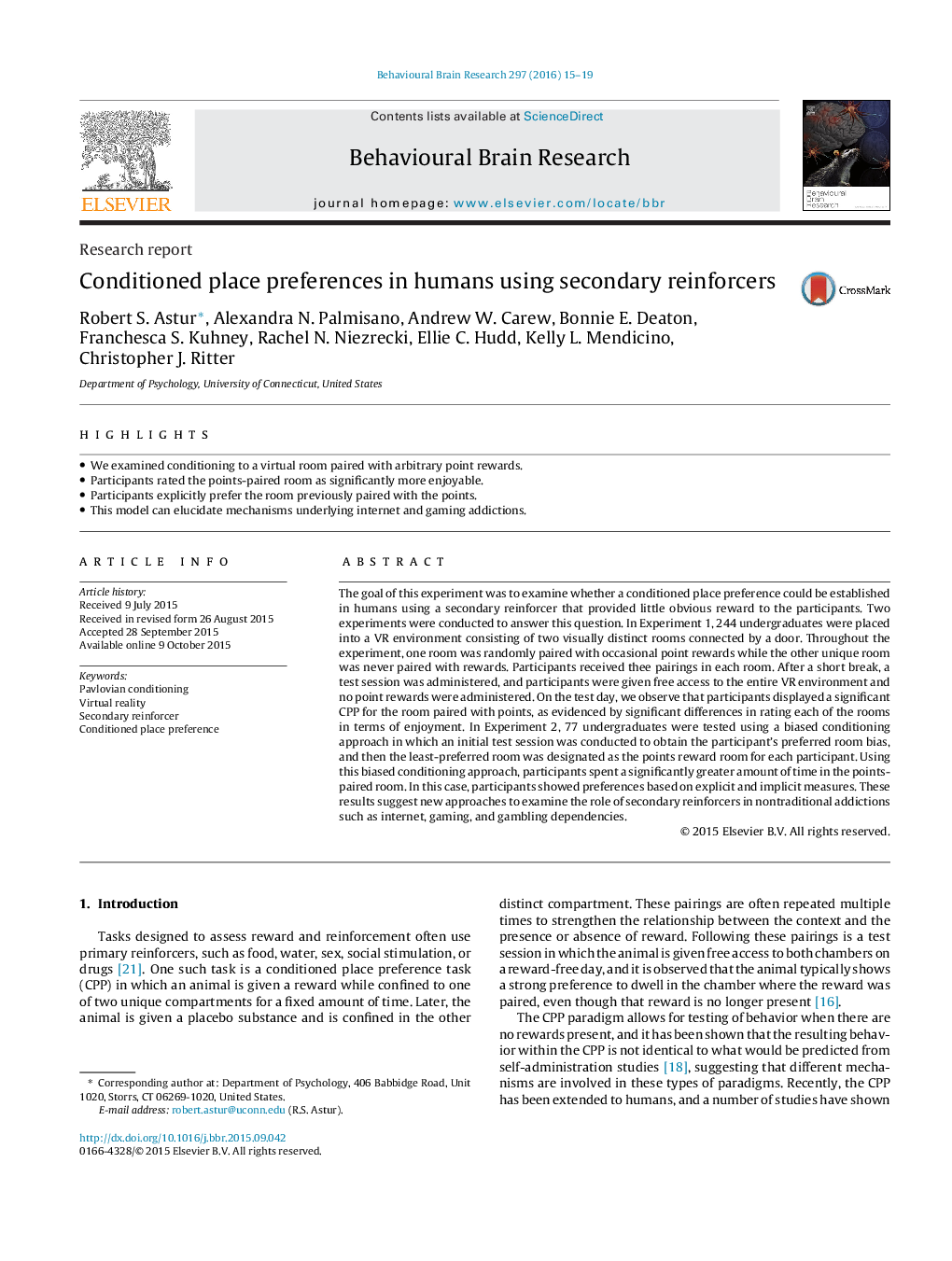| Article ID | Journal | Published Year | Pages | File Type |
|---|---|---|---|---|
| 6256360 | Behavioural Brain Research | 2016 | 5 Pages |
â¢We examined conditioning to a virtual room paired with arbitrary point rewards.â¢Participants rated the points-paired room as significantly more enjoyable.â¢Participants explicitly prefer the room previously paired with the points.â¢This model can elucidate mechanisms underlying internet and gaming addictions.
The goal of this experiment was to examine whether a conditioned place preference could be established in humans using a secondary reinforcer that provided little obvious reward to the participants. Two experiments were conducted to answer this question. In Experiment 1, 244 undergraduates were placed into a VR environment consisting of two visually distinct rooms connected by a door. Throughout the experiment, one room was randomly paired with occasional point rewards while the other unique room was never paired with rewards. Participants received thee pairings in each room. After a short break, a test session was administered, and participants were given free access to the entire VR environment and no point rewards were administered. On the test day, we observe that participants displayed a significant CPP for the room paired with points, as evidenced by significant differences in rating each of the rooms in terms of enjoyment. In Experiment 2, 77 undergraduates were tested using a biased conditioning approach in which an initial test session was conducted to obtain the participant's preferred room bias, and then the least-preferred room was designated as the points reward room for each participant. Using this biased conditioning approach, participants spent a significantly greater amount of time in the points-paired room. In this case, participants showed preferences based on explicit and implicit measures. These results suggest new approaches to examine the role of secondary reinforcers in nontraditional addictions such as internet, gaming, and gambling dependencies.
